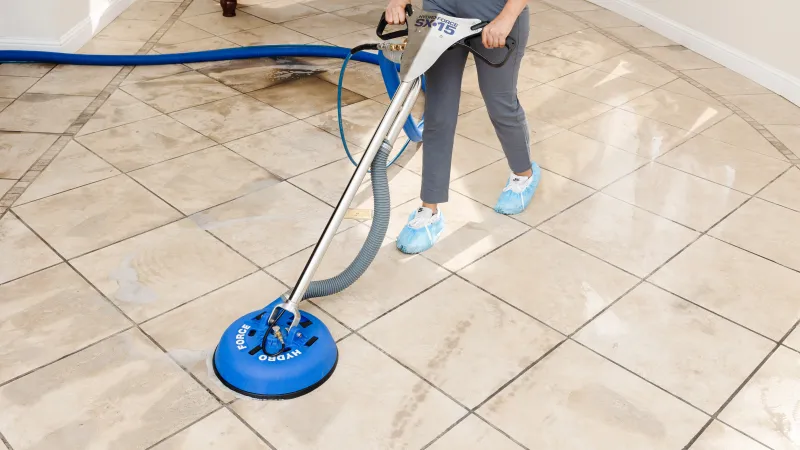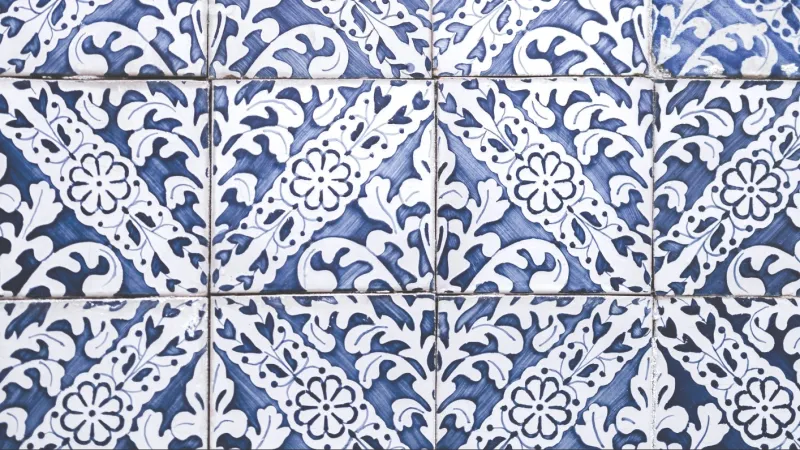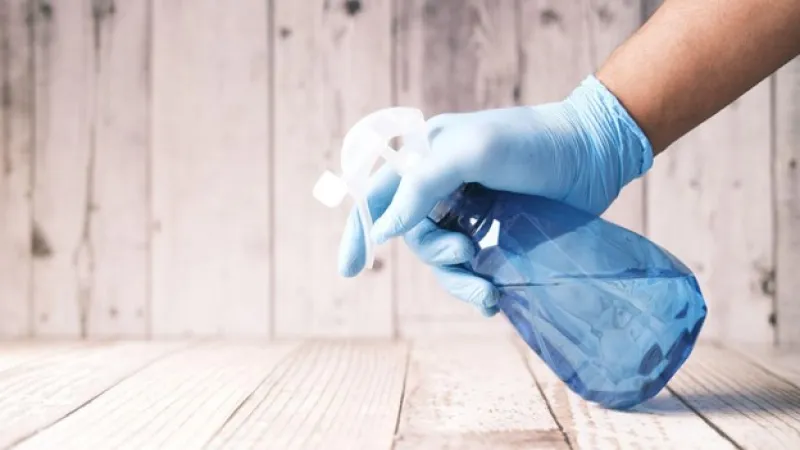Why Your Shoes Squeak on Tile Floors & How to Stop It from Happening
Squeaky shoes are disgusting and embarrassing, especially if they attract the attention of those around you. So, why do my shoes squeak on tile?
Your shoes squeak on the tile due to the following reasons:
- The shoes' construction or material
- Poorly fitted shoes
- Unleveled or poorly fitted tiles
- Seams or cracks on the tiles
Don't throw away squeaky shoes! You can fix squeaky shoes by:
- Applying silicone sprays such as WD-40
- Completely drying them before wearing
- Applying a conditioner, coconut oil, or baby powder under the orthotic or innersole
- Breaking in new shoes
- Rough the shoes' bottom with fine sandpaper Reattaching the shoes' bottom if it's loose
Let's discuss the reasons for squeaky shoes and how to fix them.
Why Do My Shoes Squeak on Tile?
As seen above, there are many reasons why your shoes squeak. Let's discuss each below.
The Shoes' Construction or Material
Shoe soles made of PVC, rubber, or polyurethane create friction when you walk on tiles or slippery hardwood floors, causing a squeaky sound.
Athletic and basketball shoes are made of flexible rubber outsoles making them squeaky on smooth floors such as tiles.
High Pressure
Wearing heavy shoes or taking big steps increases the pressure under your feet, making the floor and sole rub against each other more intensely. This makes the squeaks louder.
Small, lighter steps reduce the pressure, making the squeaks less noticeable.
Unleveled or Poorly Fitted Tiles
Cracked or poorly installed tiles create gaps in the flooring surface. When the shoes rub against these areas, they can squeak. Smooth and polished wood floors also lack enough traction, so your shoes can squeak when you walk on them as well.
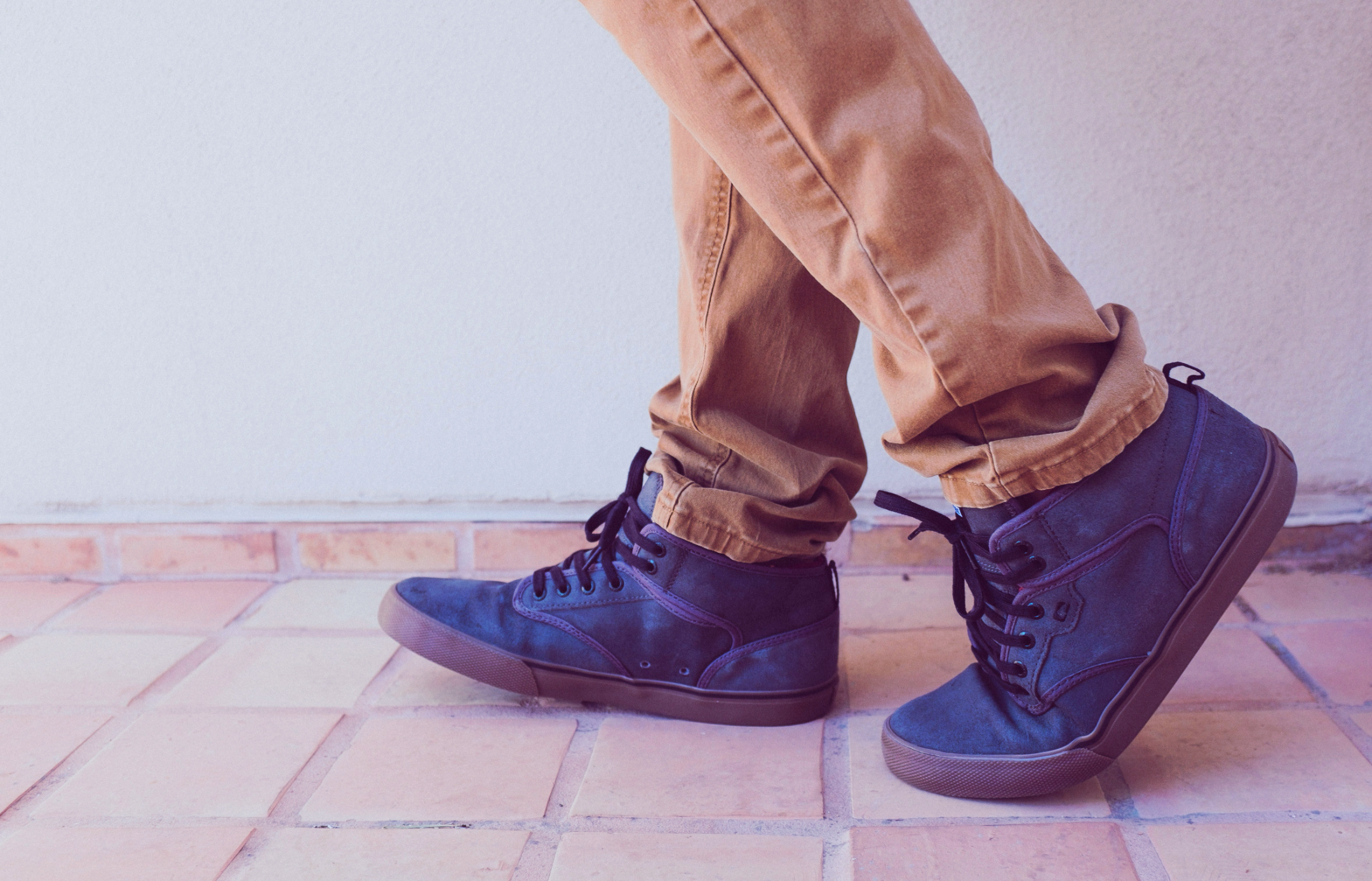
Too Much Moisture
Moist shoes, feet, or floors make a squawk sound when you walk.
Ensure your shoes are completely dry, especially the midsole, which takes longer to dry. Moist feet and the inside of the shoes, including the insole, cause a squeaky sound when walking. Inspect the shoes to ensure no hole allows in moisture, resulting in squeaking.
Since tiled floors become sticky after mopping, allow them to dry completely before walking on them. It can help to find ways to warm up cold tile floors so they dry faster as well.
Shoes Not Fitting Properly
Improperly fitted shoes are a pain to wear, and they also squeak a lot because of high friction when some parts rub your feet or against each other.
How to Stop Shoes From Squeaking on Tile: DIY Ideas
Don't throw away your squeaky shoes! Below are easy, DIY ways to stop shoes from squeaking on tiles.
Apply Silicone Spray
Clean the shoes and air dry them. Apply enough silicone spray, preferably WD-40, to the squawking areas of your shoes. Silicone gives your shoe, including the rubber shoe outsoles, excellent traction, stopping them from squeaking.
Silicone damages suede; don't use it on shoes with that material. After application, air-dry the shoes for several hours before wearing them.
Completely Dry Them Before Wearing
Avoid wearing wet shoes as moisture causes them to squeak, mainly in the midsole, as it takes longer to dry than the outside of any shoe.
You can put a Silica gel packet in your shoes, stuff your shoes with newspaper, or hang them in a warm, dry place, such as a fireplace or a laundry room, for several hours to help remove all the moisture.
Apply a Conditioner
Use a damp cloth to remove dust and dirt from your shoes, and then apply some conditioner on a clean, soft cloth.
Using a circular motion, gently rub it on your squeaky shoes for at least 20 minutes or until it penetrates completely.
Apply the leather conditioner often to prevent cracks and squeaks on your leather shoes.
Apply Coconut Oil
Clean the shoes to get rid of dust and dirt. Remove the shoes' insoles. Gently apply a thin layer of coconut oil to them and reinsert them.
Coconut oil helps the shoes to stop squeaking by lubricating them. If the shoes start to squeak again, reapply coconut oil.
Apply Baby Powder, Cornstarch, or Talcum Powder
Moving insoles cause a lot of squeaky sounds. Remove the insoles, sprinkle baby or talcum powder inside the shoes to reduce friction, and reinsert.
For non-removable insoles, sprinkle talcum powder or baby powder along the seams of your shoes. You can also use cornstarch if you don't have baby or talcum powder.
If your shoes only squeak when you wear them without socks, the friction between your moist bare feet and the shoes' insoles is causing the annoying sounds. Baby powder application reduces the friction between moist feet and the insoles.
Wear in New Shoes
Some shoes squeak when new because the material is still very stiff. The more you wear them, the more they soften and stop squeaking.
So, wear new squeaky shoes often while at home so that they adapt and soften before you use them in public areas.
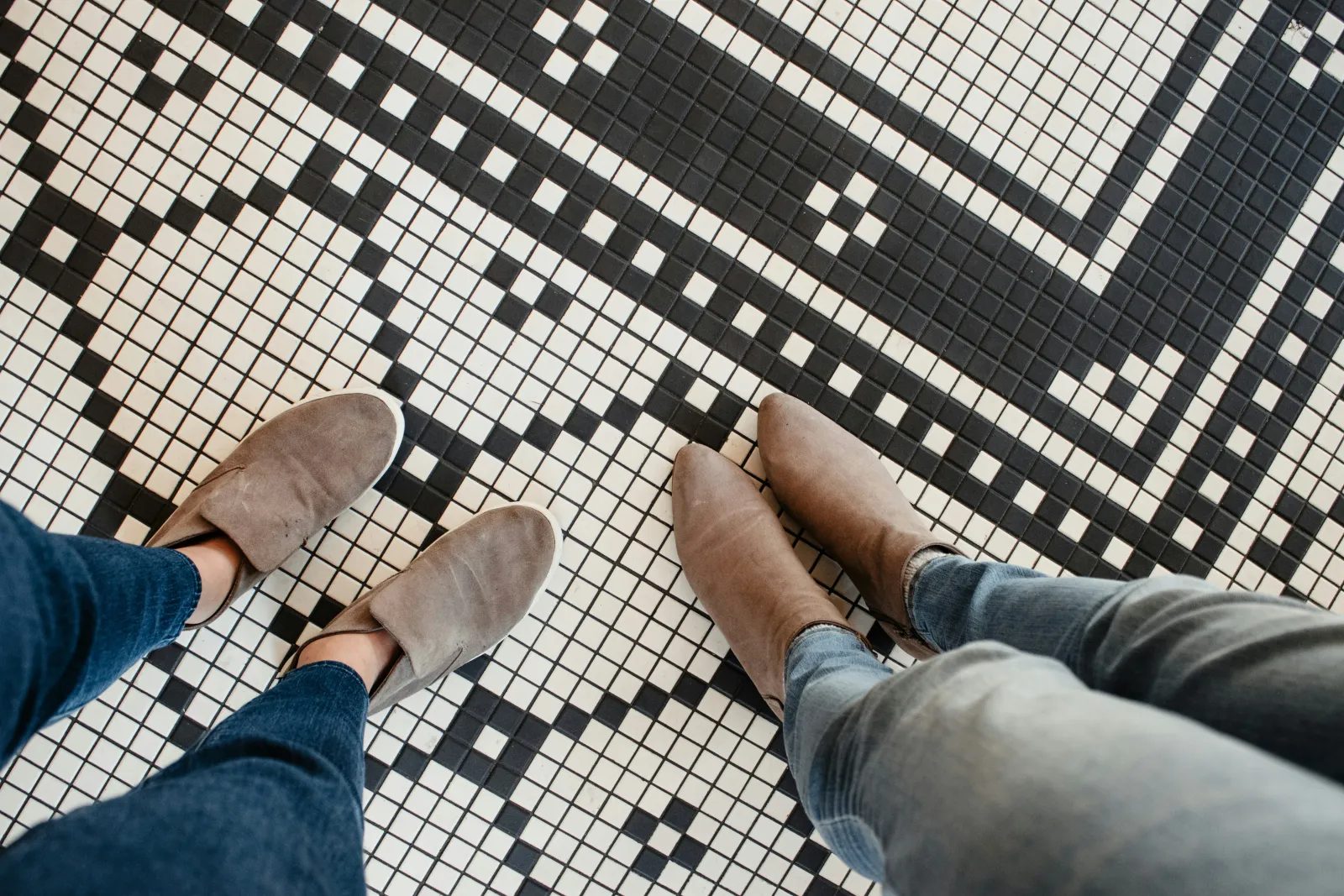
Wear Fitted Shoes
Buy properly fitted shoes. Ensure the feet aren't squeezed and the heels aren't slipping out. The toe box must accommodate your toes comfortably because the shoe expands slightly after wearing it several times.
Put paper towels, dryer sheets, or napkins under the insoles if the shoes are slightly bigger. This helps the shoe to fit properly and prevent squeaky sounds when you walk. To prevent odors, change the paper towel.
You can also wear (no-show) socks. Socks or an extra insole could help if the shoes are oversized, causing too much friction between your feet and the insoles.
Rough the Shoes' Bottom With Sandpaper
Shoes with smooth outsoles are highly squeaky when you walk on highly polished floors. Rough up such shoes using sandpaper, preferably with 120-220 grit. Don't overdo it, lest you scratch the bottom.
This is also an excellent hack for highly slippery shoes as their traction improves.
You can also run the shoe bottom with the dryer sheet if they're too smooth to lessen the squeakage. This is a short-term solution, so you may have to keep wiping them whenever they start squeaking again.
Reattach the Shoe's Bottom if It's Loose
Gaps between the outsoles and the upper parts of the shoes cause annoying squeaky sounds when you walk on tiles or highly polished wooden floors. Use super glue to reattach them, and clamp them down (or wrap them with a rubber band).
You can leave the clamped down overnight to dry completely and test them out the next day.
Lubricate the Tongue or Shoe Laces
Use a lubricant to alleviate squeaky shoe tongue and laces. Remove the shoe laces and apply the lubricant on the tongues to lessen the friction and make them move freely.
Only use the recommended lubricant based on the shoe material to avoid degrading or staining your shoes.
Opt for the Right Way to Clean!
If your shoes are squeaky due to the wrong choice of floor cleaning products, contact Zerorez®. We offer professional tile and grout cleaning services across the United States, Canada, and the UK. Contact us today for non-squeaky and Zero Residue® floor cleaning services.
